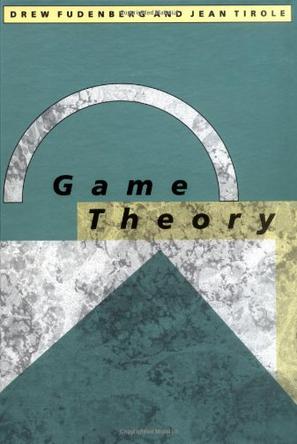Game Theory
内容简介
This advanced text introduces the principles of noncooperative game theory - including strategic form games, Nash equilibria, subgame perfection, repeated games, and games of incomplete information - in a direct and uncomplicated style that will acquaint students with the broad spectrum of the field while highlighting and explaining what they need to know at any given point. The analytic material is accompanied by many applications, examples, and exercises.The theory of noncooperative games studies the behavior of agents in any situation where each agent's optimal choice may depend on a forecast of the opponents' choices. "Noncooperative" refers to choices that are based on the participant's perceived selfinterest. Although game theory has been applied to many fields, Fudenberg and Tirole focus on the kinds of game theory that have been most useful in the study of economic problems. They also include some applications to political science. The fourteen chapters are grouped in parts that cover static games of complete information, dynamic games of complete information, static games of incomplete information, dynamic games of incomplete information, and advanced topics.Drew Fudenberg and Jean Tirole are Professors of Economics at MIT.
......(更多)
作者简介
......(更多)
目录
......(更多)
读书文摘
举例来说,前面提到的夫妻二人争夺电视频道的博弈中,正因为丈夫要看体育频道,妻子要看连续剧频道,双方都是利己的,才有博弈发生。如果妻子考虑丈夫平时工作太忙,难得有时间看一场球,那就把电视让给丈夫吧。这样的话就不存在博弈了,因为妻子作为博弈参与者,已经不再是理性人了,她已经放弃了为自己争取利益。理性人必须是利己的,这样双方或者多方之间才会有博弈产生。
理性人”源自经济学术语“理性经济人”,这是西方经济学中的一个基本假设,是指参与者都是利己的,在几种策略中他们会选择能给自己带来最大利益的那一个。在博弈论中,参与者是理性人是指每个参与者的基本出发点是为自己争取最大利益,每个人在制定决策的时候,都会选择能给自己带来最大利益的那个决策。
......(更多)






